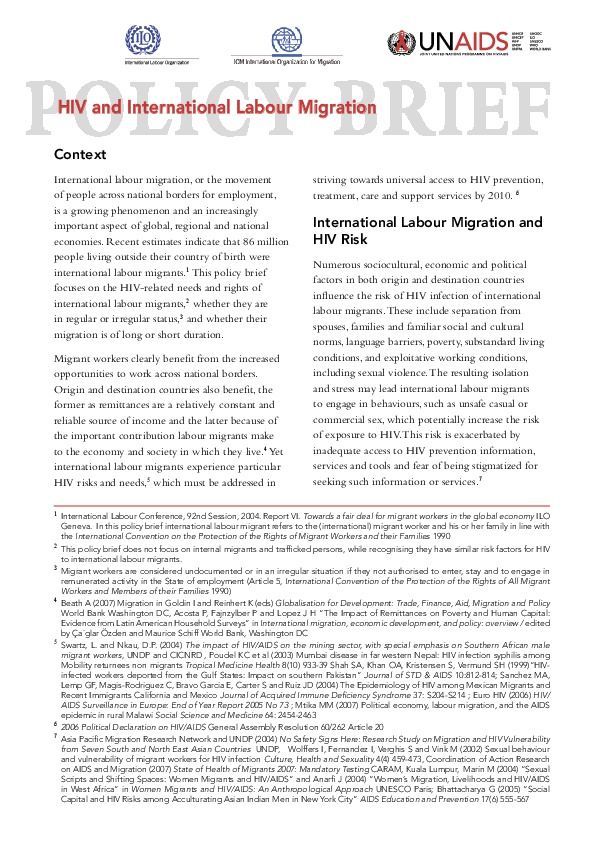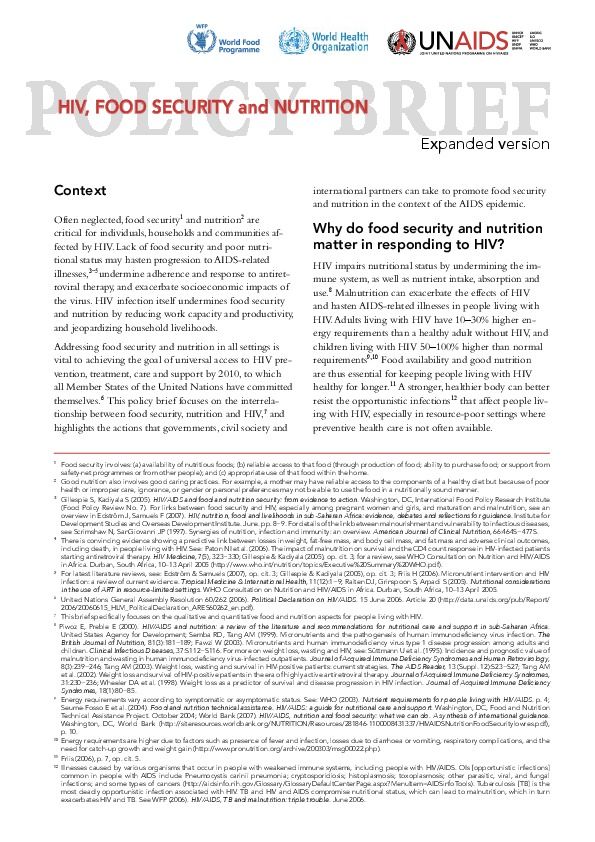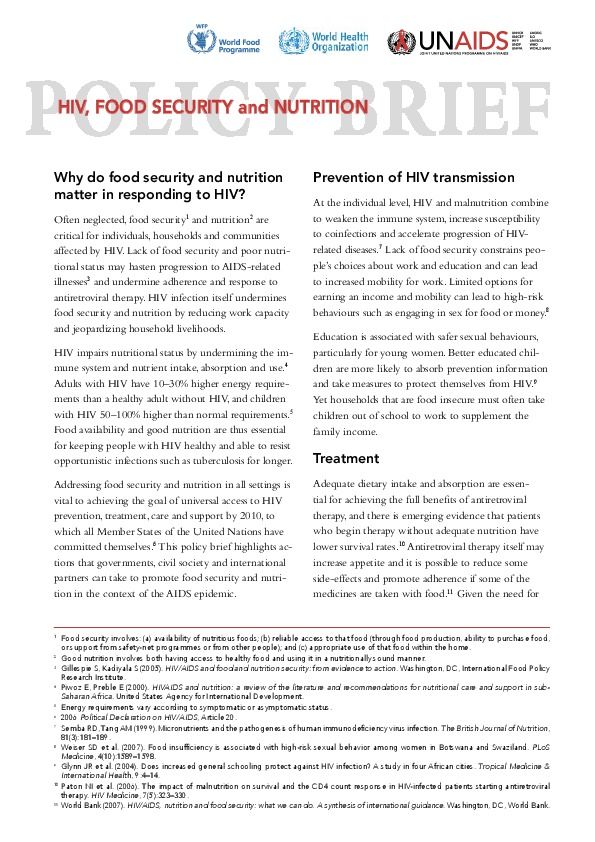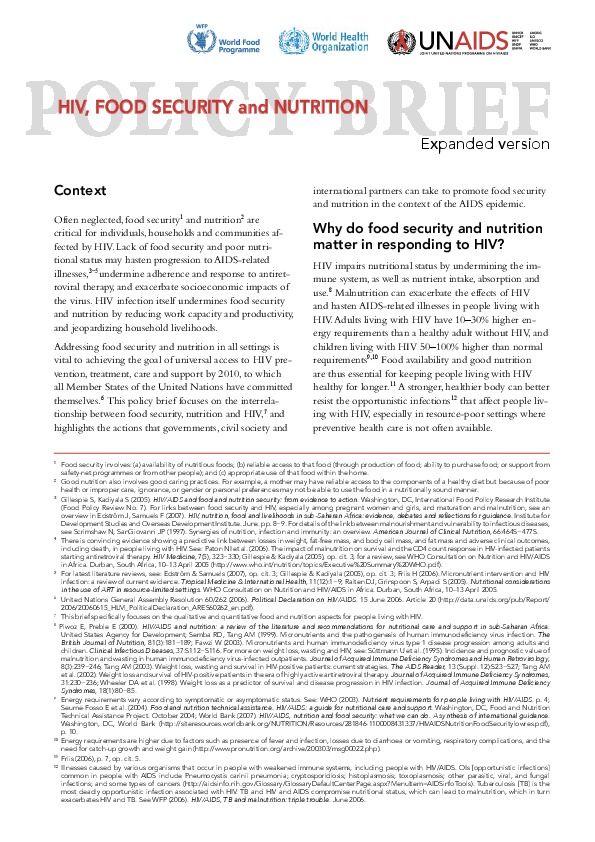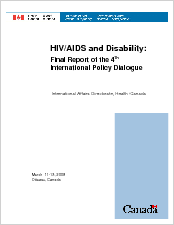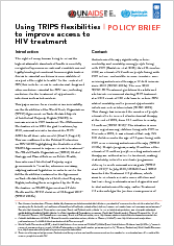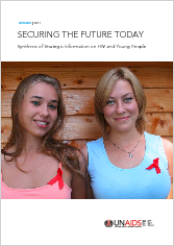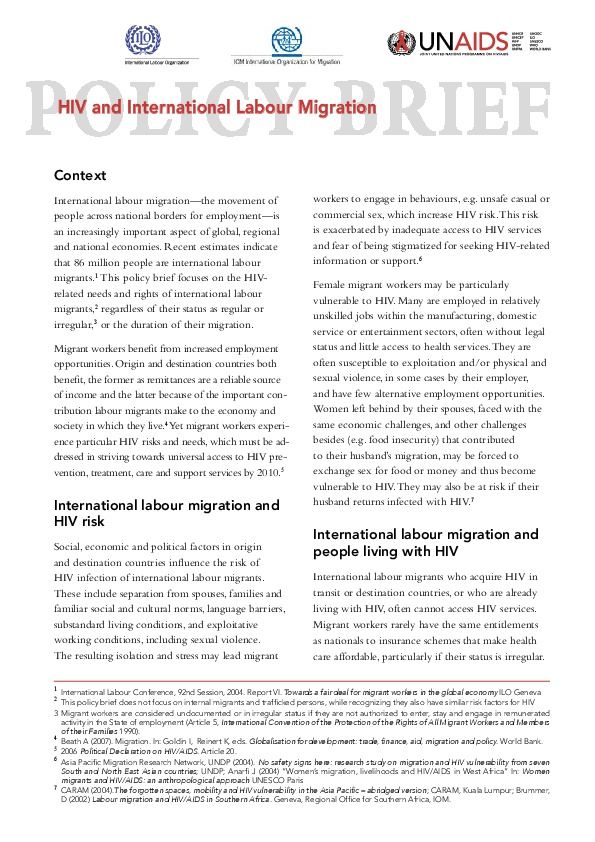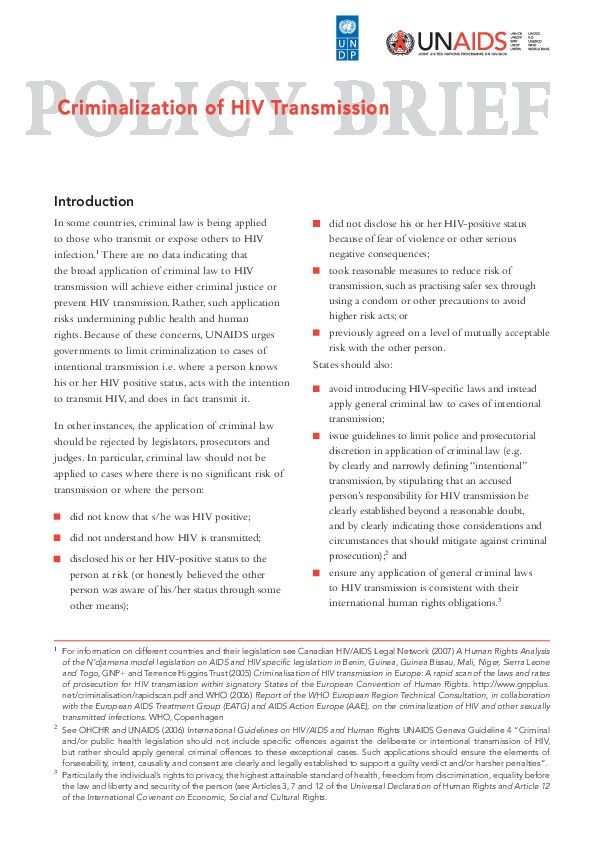Documents
Policy Brief The Greater Involvement of People Living with HIV (GIPA)
10 April 2007
This policy stresses that no single agency or organization can provide for the full spectrum of needs of people living with HIV: partnerships between actors are therefore needed. To enable the active engagement of people living with HIV, UNAIDS urges all actors to ensure that people living with HIV have the space and the practical support for their greater and more meaningful involvement. The GIPA Principle aims to realize the rights and responsibilities of people living with HIV, including their right to self-determination and participation in decision-making processes that affect their lives. This principle was formalized at the 1994 Paris AIDS Summit when 42 countries agreed to “support a greater involvement of people living with HIV at all levels and to stimulate the creation of supportive political, legal and social environments”.
Documents
Policy Brief - HIV, food security and nutrition
10 December 2008
Often neglected, food security and nutrition are critical for individuals, households and communities affected by HIV. Lack of food security and poor nutritional status may hasten progression to AIDS-related illnesses and undermine adherence and response to antiretroviral therapy. HIV infection itself undermines food security and nutrition by reducing work capacity and jeopardizing household livelihoods.
Documents
Policy Brief - HIV, food security and nutrition (expanded version)
10 November 2008
Often neglected, food security and nutrition are critical for individuals, households and communities affected by HIV. Lack of food security and poor nutritional status may hasten progression to AIDS-related illnesses and undermine adherence and response to antiretroviral therapy. HIV infection itself undermines food security and nutrition by reducing work capacity and jeopardizing household livelihoods.
Documents
HIV/AIDS and Disability: Final Report of the 4th International Policy Dialogue
11 November 2009
Documents
Policy Brief - Using TRIPS flexibilities to improve access to HIV treatment
15 March 2011
Documents
Securing the Future Today – Synthesis of Strategic Information on HIV and Young People
27 July 2011
This report shows that these global commitments will be achieved only if the unique needs of young women and men are acknowledged, and their human rights fulfilled, respected, and protected. In order to reduce new HIV infections among young people, achieve the broader equity goals set out in the MDGs, and begin to reverse the overall HIV epidemic, HIV prevention and treatment efforts must be tailored to the specific needs of young people.


